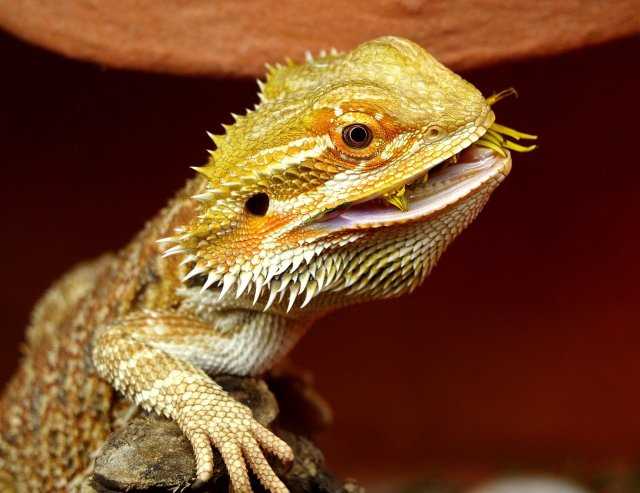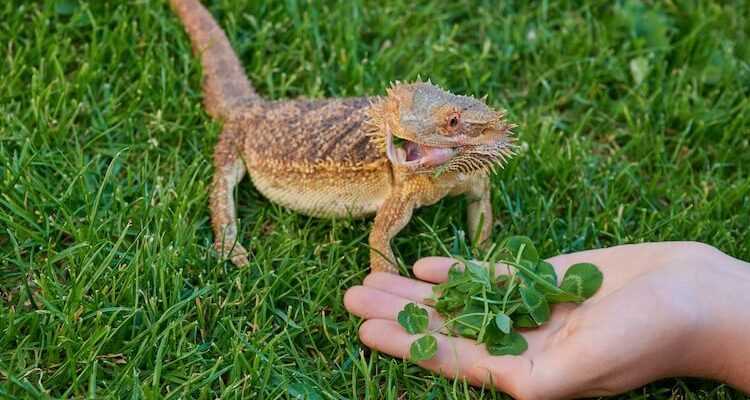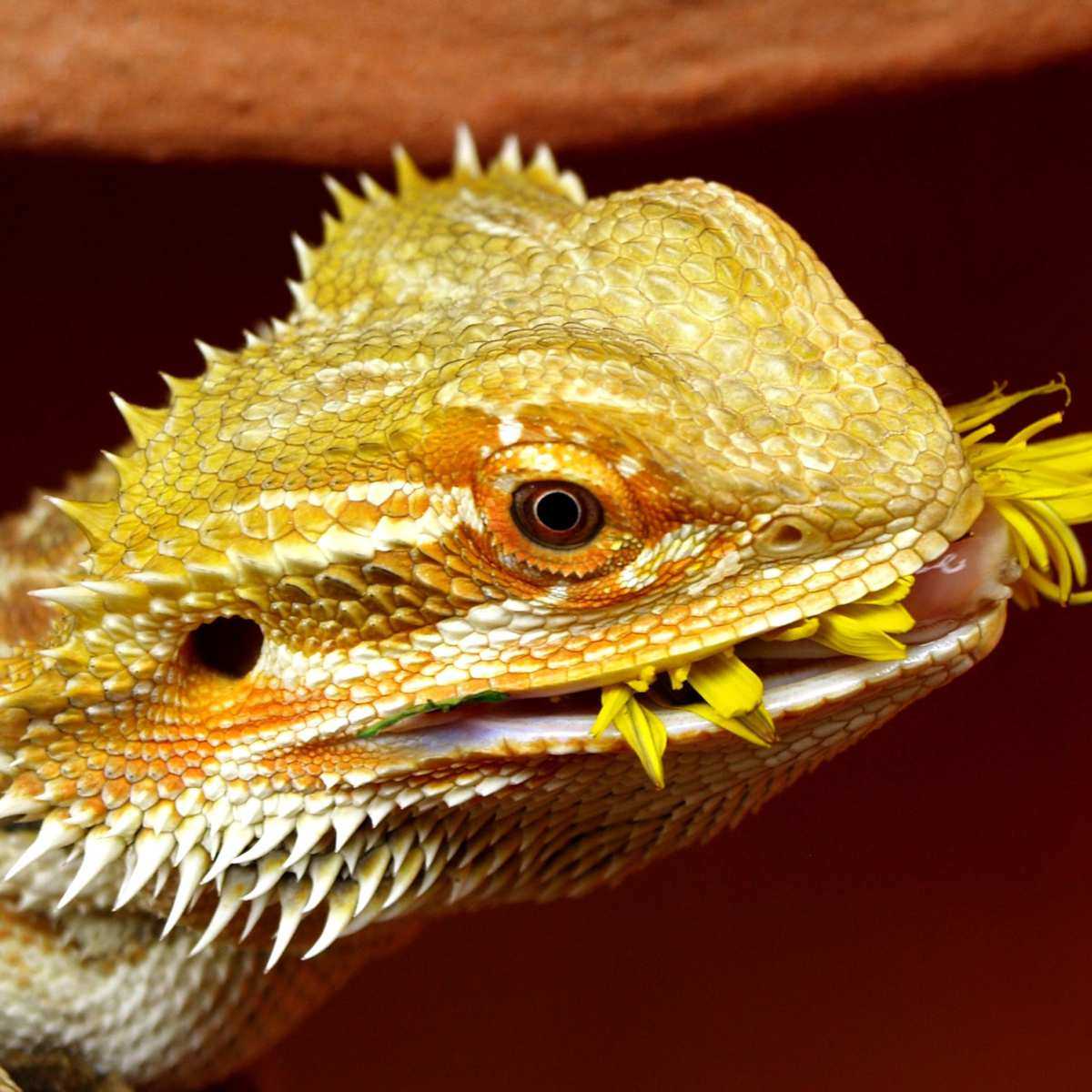
Bearded dragons are omnivorous, meaning their diet consists of both plant-based foods and insects. While they primarily feed on insects like crickets and mealworms, they can also benefit from consuming certain fruits and vegetables. Basil is one such herb that can be included in their diet, but it should be given in moderation.
Although basil is safe for bearded dragons to consume, it should not be their primary source of nutrition. It is best to offer a balanced diet that includes a variety of insects, vegetables, and fruits to ensure they receive all the necessary nutrients. Additionally, bearded dragons should always have access to clean water to stay hydrated.
Benefits of Basil for Bearded Dragons
Basil is a herb that can be a beneficial addition to a bearded dragon’s diet. It offers several health benefits and can be included as a part of a varied and balanced diet for these reptiles.
Here are some key benefits of feeding basil to bearded dragons:
| Benefit | Description |
|---|---|
| Source of Vitamins and Minerals | Basil is rich in vitamins A and K, as well as minerals like calcium, iron, and magnesium. These nutrients are essential for the overall health and well-being of bearded dragons. |
| Antioxidant Properties | Basil contains antioxidants that help in neutralizing harmful free radicals in a bearded dragon’s body. This can promote their immune system and protect them against oxidative stress. |
| Anti-inflammatory Effects | The compounds found in basil have anti-inflammatory properties that can help reduce inflammation in bearded dragons. This can be beneficial in managing any inflammatory conditions or injuries they might have. |
| Hydration | Basil leaves have a high water content, which can help keep bearded dragons hydrated. Adequate hydration is essential for their overall health and proper functioning of their bodily systems. |
| Palatability | Many bearded dragons enjoy the taste of basil, making it a great option to add variety and enrichment to their diet. It can stimulate their appetite and make mealtime more enjoyable for them. |
Nutritional Value of Basil
Basil is a nutritious herb that can be beneficial for bearded dragons when included in their diet. It contains essential vitamins and minerals that contribute to their overall health and well-being.
Vitamins
Basil is a good source of various vitamins that are important for bearded dragons. It is particularly rich in vitamin K, which plays a crucial role in blood clotting and bone health. Additionally, basil contains vitamins A and C, which are antioxidants that help boost the immune system and promote healthy skin and eyesight.
Minerals
Basil also provides important minerals that are essential for bearded dragons. It contains calcium, which is necessary for strong bones and proper muscle function. Basil also contains iron, which is important for red blood cell production and preventing anemia. Other minerals found in basil include potassium, magnesium, and manganese.
Calcium to Phosphorus Ratio
One important consideration when feeding basil to bearded dragons is the calcium to phosphorus ratio. Bearded dragons require a proper balance of calcium and phosphorus for optimal health. Basil has a higher calcium content compared to phosphorus, making it a good addition to their diet and helping maintain their calcium balance.
Avoid Overfeeding
While basil can be a nutritious addition to a bearded dragon’s diet, it should not be the main component. Bearded dragons require a diverse diet consisting of various fruits, vegetables, and insects to meet their nutritional needs. Basil can be given as a treat or alongside their primary diet to provide additional nutrients and variety.
Conclusion
Basil is a nutritious herb that can be safely given to bearded dragons. Its rich vitamin and mineral content make it beneficial for their overall health. However, it should be given in moderation and as part of a balanced diet to ensure they receive all the necessary nutrients.
How to Feed Basil to Your Bearded Dragon
Feeding basil to your bearded dragon can be a nutritious and tasty addition to their diet. Here are some guidelines to follow when feeding basil:
2. Wash the basil thoroughly: Before feeding basil to your bearded dragon, make sure to wash it thoroughly to remove any dirt or residue. This will help ensure that your pet is not ingesting any harmful substances.
4. Offer basil as a supplement: Basil should not be the main component of your bearded dragon’s diet but rather a supplement. It can be offered a few times a week, in addition to their staple diet of vegetables, insects, and commercial reptile food.
By following these guidelines, you can safely incorporate basil into your bearded dragon’s diet, providing them with added nutrition and flavor.
Can Basil Bearded Dragons?
Basil is a popular culinary herb that is often used in cooking and has a pleasant aroma and taste. It is rich in vitamins and minerals, making it a potentially nutritious addition to a bearded dragon’s diet.
Bearded dragons are omnivorous reptiles that require a balanced diet of plants and insects. They can eat a wide variety of fruits, vegetables, and herbs, but not all options are safe for them.
When feeding basil to bearded dragons, it is recommended to wash the leaves thoroughly and remove any dirt or pesticides. The basil can be offered fresh or dried, but avoid using any seasonings or additives. The leaves can be torn into small pieces to make it easier for the bearded dragons to eat.
Can Bearded Dragons Eat Fresh Basil?
Bearded dragons can indeed eat fresh basil as part of their diet. Basil is a safe and nutritious herb that can provide various health benefits to these reptiles. While not a staple food, adding fresh basil to your bearded dragon’s diet can be a healthy and flavorful treat.
Basil is rich in vitamins and minerals that are essential for the overall well-being of bearded dragons. It contains vitamins A, C, and K, as well as calcium, iron, and magnesium. These nutrients play a crucial role in maintaining a healthy immune system, promoting proper bone growth, and supporting optimal digestion.
It is recommended to chop the basil leaves into smaller pieces to make it easier for your bearded dragon to consume. This is particularly important for juvenile dragons or those with smaller mouth openings.
Offering fresh basil as an occasional treat can help to add variety to your pet’s diet. However, it should not make up the majority of their food intake. Bearded dragons require a balanced diet that includes a mixture of vegetables, fruits, and proteins.
Can Bearded Dragons Eat Dried Basil?

One of the main benefits of dried basil for bearded dragons is its high calcium content. Calcium is essential for the development and maintenance of strong bones and teeth in reptiles. By incorporating dried basil into your dragon’s diet, you can help prevent the risk of bone diseases such as metabolic bone disease.
Dried basil also contains other important nutrients such as vitamins A and K. Vitamin A is crucial for maintaining healthy vision and a strong immune system, while vitamin K plays a role in blood clotting and bone health. Including dried basil in your bearded dragon’s diet can help ensure they receive these essential vitamins.
Can Bearded Dragons Eat Basil Leaves?
The answer is yes, bearded dragons can eat basil leaves, but in moderation. Basil is a herb that can provide some nutritional benefits to your reptile friend when given in the right amounts. However, it should not be a staple in their diet and should only be offered as an occasional treat.
Nutritional Value of Basil Leaves
Basil leaves contain various vitamins and minerals that can support your bearded dragon’s health. They are a good source of vitamin K, which is essential for blood clotting and bone health. Basil leaves also contain vitamin A, which is important for maintaining healthy eyesight and immune function.
In addition to vitamins, basil leaves contain important minerals such as potassium, calcium, and magnesium. These minerals support proper muscle function, nerve function, and bone development in bearded dragons.
How to Offer Basil Leaves to Your Bearded Dragon
Potential Risks and Side Effects
While basil leaves can be a healthy addition to your bearded dragon’s diet, there are some potential risks and side effects to keep in mind. Basil leaves contain a compound called eugenol, which can be irritating to the stomach in large amounts. This is why it’s crucial to offer basil leaves in moderation and not as a primary food source.
Additionally, some bearded dragons may be allergic or have a negative reaction to basil leaves. If you notice any signs of gastrointestinal upset, vomiting, or unusual behavior after feeding basil leaves to your bearded dragon, it’s best to discontinue their use and consult a veterinarian.
Bearded dragons can eat basil leaves, but they should be offered in moderation and as part of a varied diet. The nutritional value of basil leaves can provide some health benefits to your bearded dragon, but it should not replace their primary source of nutrition. Always consult with a veterinarian or reptile specialist to ensure that your bearded dragon’s diet is appropriate and meets their specific needs.
Can Bearded Dragons Eat Basil Flowers?

Basil flowers are rich in vitamins and minerals that can benefit the overall health of bearded dragons. They are a good source of calcium, which is essential for strong bones and overall growth. Basil flowers also contain antioxidants that can help boost the immune system and protect bearded dragons from illness.
How to Feed Basil Flowers to Your Bearded Dragon:
- Wash the basil flowers thoroughly to remove any pesticides.
- Remove any wilted or discolored flowers.
- Offer a small amount of basil flowers as a treat, alongside their regular diet.
- Observe your bearded dragon for any signs of digestive issues or allergies.

I’m Lena Adams—a product of an unconventional upbringing in the African wilderness. My father, a daring explorer of African wildlife, sparked my fascination with reptiles, a passion that intertwined with the tragic loss of my mother during an expedition, leaving an indelible mark on my life. Driven to understand the creatures that captivated my parents, I embarked on my journey, sharing insights about reptiles, frogs, and lizards on my website. Through my explorations and conservation efforts, I honour my family’s legacy while seeking connections—to the creatures, nature, and the mother whose presence I yearn to understand.
